
Transplant Infectious Diseases Physician-Scientist
Houston Methodist Hospital
Dr. Ni received her MD and PhD through the Medical Scientist Training Program (MSTP) at Ohio State University, where her dissertation research explored effects of microRNA alterations in human macrophages during Mycobacterium tuberculosis infection. She subsequently completed internal medicine training at Ohio State University, followed by infectious disease fellowship at Vanderbilt University Medical Center.
As a KURe scholar, Dr. Ni addressed BK virus-associated complications in renal transplant recipients, including BK virus-associated ureteral stenosis and nephropathy, which are important causes of graft injury and loss. By integrating clinical factors and polyfunctional T-cell signatures associated with BK virus reactivation, her goal was to create validated risk prediction models to identify patients at risk for BK virus-related complications after renal transplantation, ultimately enabling tailored screening and immunosuppression strategies to improve outcomes. Her broader research interests extend to understanding interactions at the host-pathogen interface, with the ultimate goal of developing novel diagnostics and host-directed therapies for infectious diseases.
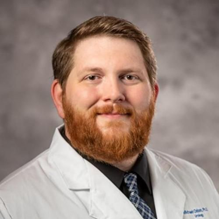
Assistant Professor, Department of Urology, Duke University Medical Center
Dr. Odom began his career as a paramedic and obtained a BS in Emergency Medical Care from Western Carolina University before transitioning into basic science research. He then earned a PhD in Physiology from East Carolina University where his research focused on neurovascular mechanisms responsible for erectile dysfunction following prostate cancer treatment. In 2020, he joined the Duke University Urinary Dysfunction Laboratory as a postdoctoral associate.
As a KURe scholar, Dr. Odom’s research focused on diabetic bladder dysfunction and NLRP3 inhibition as a promising potential therapeutic intervention. Inflammation mediated through NLRP3 inflammasome activation directly contributes to the progression of diabetic bladder dysfunction through unknown mechanisms. Currently, there are no effective treatments for diabetic bladder dysfunction and NLRP3 inhibition is a promising potential therapeutic intervention. He continues this line of research is his current position.

Dr. Abbott completed her PhD in 2017 with a dissertation that added tendon mechanics to the traditional study of muscle physiology. This research opened questions about sensory feedback which Dr. Abbott pursued as a postdoctoral associate in the Physiology of Wearable Robotics (PoWeR) Lab at Georgia Institute of Technology. To expand her electrophysiology skillset, Dr. Abbott joined the Lemay Lab at Temple University and investigated how to re-engage locomotor centers after spinal cord injury. In 2022, Dr. Abbott joined the Grill Lab to lead a spinal cord injury study that applies high-frequency spinal cord stimulation to restore bladder function. Effective bladder function relies on appropriate compliance of the detrusor muscle. As a KURe scholar, Dr. Abbott investigated how compliance of the neurogenic bladder may limit or enhance neuromodulation.
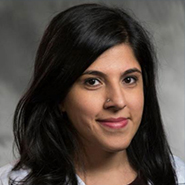
Sonali D. Advani, MBBS, MPH
Adjunct Associate Professor in the Department of Medicine
Scientific Leadership Physician, GSK/ViiV Healthcare
Dr. Advani’s KURe research project focused on leveraging urinalyses criteria to improve the diagnosis of urinary tract infections (UTIs) in elderly patients. UTIs in older adults pose a diagnostic dilemma to most clinicians. The high incidence of asymptomatic bacteriuria and inability to express genitourinary symptoms increases the risk of inappropriate culturing and adverse events in this group.
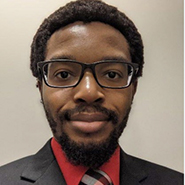
Postdoctoral Associate, Janelia Research Campus
Dr. Hayes earned a BS degree in Biochemistry from Virginia Polytechnic Institute and State University. He then completed his PhD in Pathology at Duke University in 2021 in research focused on the interplay between the nervous and immune systems during bladder pain syndrome (BPS). Dr. Hayes’ KURe project focused on defining the mechanisms behind BPS following recurrent urinary tract infection (rUTI). He published 3 papers in high impact journals, and presented at multiple conferences. His mentors were Dr. Soman Abraham and Dr. J. Todd Purves. In the future, he plans to obtain a faculty position where he can combine the urology training he gained as a KURe scholar with the neuroscience training he receives at Janelia Research to innovatively address challenges that require expertise in both disciplines.
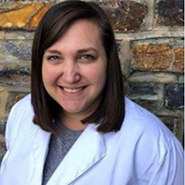
Regulatory Scientist I, Rho, Inc.
Dr. Steadman earned her B.S. in Biological Engineering and her M.S. in Biomedical Engineering from Mississippi State University. She then completed her PhD at the University of Louisville where she studied the effects of spinal cord injury on sexual function in a rat contusion model. In 2019, Dr. Steadman joined the Grill Laboratory at Duke University.
Dr. Steadman is passionate about researching top priority quality of life issues after spinal cord injury. Her KURe research focused on neuromodulatory therapeutic targets for improving bladder and sexual function post-injury. Dr. Steadman sought to practice bench-to-bedside research, in which interventions from the animal model impact individuals with spinal cord injury, under the mentorship of Dr. Helen Hoenig.

Assistant Research Professor, School of Nursing; Pediatric Nurse Practitioner, Pediatric Urology, Department of Surgery
Dr. Kelly earned a BS in biology from Fairfield University and a BS in nursing from Columbia University. She then obtained her Masters in Nursing from Columbia University and a Doctorate in Pediatric Nursing from the University of Pittsburgh. In 2015, Dr. Kelly joined Duke University where she practices pediatric urology and conducts clinical research.
Dr. Kelly’s KURe research focused on lower urinary tract symptoms for patients with diabetes. With the increasing number of children being diagnosed with diabetes, known complications of this disease are now being identified in ever- younger patients. Lower urinary tract symptoms are a known complication of diabetes and Dr. Kelly investigated the prevalence of these symptoms in children with diabetes and evaluated possible treatment and prevention options. Her funding includes NIDDK-CAIRIBU- University of Wisconsin - Composition of the Urinary Microbiome in Children (PI) and Pediatric Trials Network- NICHD Defining the Safety and Efficacy of Posterior Tibial Nerve Stimulation (co-PI).

Optical Engineer, Clarapath Inc.
Dr. Ho earned his BS degree in Biomedical Engineering from the University of Texas at Austin. He went on to complete his PhD degree in Biomedical Engineering at Duke University in 2019 where his research focused on the development of optical technologies for clinical detection of cervical dysplasia. After earning his degree, Dr. Ho joined Dr. Pei Zhong’s research group at Duke University as a postdoctoral associate. Dr. Ho’s KURe research focused on investigating the fundamental mechanisms of kidney stone fragmentation during laser lithotripsy treatment. Understanding the laser interactions during treatment can improve treatment strategies by varying laser pulse settings for a given clinical scenario. Dr. Ho continues to collaborate with Dr. Pei Zhong.

Professor at Korea University, South Korea
Dr. Choi earned a BS in Life Sciences and a MS in Biochemistry from Korea University. He then completed his PhD in Pathology at Duke University where he investigated how a virulence factor of Salmonella interferes with the function of innate immune cells. As a postdoctoral fellow, Dr. Choi pivoted his focus from gut infection to bladder infection, seeking to understand how host innate immunity protects a host from lower urinary tract infections (UTIs). Dr. Choi's K12 research focused on providing critical information on the underlying basis for why older women are susceptible to chronic UTIs. Dr Choi is funded through the National Research Foundation of Korea and continues to collaborate with Soman Abraham, PhD (KURe mentor) and KURe scholar, Byron Hayes.
https://koreauniv.pure.elsevier.com/en/persons/hae-woong-choi

Scientist: Data Curator, Rancho Bioscience
Dr. Gonzalez earned his BS in Neuroscience from Muhlenberg College. He completed his PhD in Neuroscience at the University of Vermont where he investigated the mechanisms underlying the development of lower urinary tract symptoms following urinary bladder inflammation. In 2016, Dr. Gonzalez joined the laboratory of Dr. Warren Grill, PhD at Duke University as a postdoctoral associate. Dr. Gonzalez was awarded a K01 to investigate “Underactive Bladder: Mechanisms and Recovery of Sensation and Function.”

Associate Professor in Microbiology, Univ. of Alabama, Huntsville
Dr. Sysoeva completed her undergraduate studies at Moscow State University and got her PhD at Pennsylvania State University in 2011 working on structural and biophysical characterization of bacterial protein complexes. She proceeded with postdoctoral training in the Department of Molecular and Cellular Biology at Harvard University. From 2015 to 2018, she worked with Dr. Lingchong You at Duke University Bioengineering Department and analyzed bacterial genetic exchange that is critical to the spread of antibiotic resistance plaguing modern medicine. In 2017-2018, as part of the Duke KURe program, Tanya focused on the problem of antibiotic resistant uropathogens. Currently at the University of Alabama, her lab focuses on horizontal gene transfer (HGT) in complex microbial communities. They analyze which bacteria, when, and by what mechanism exchange genetic material in their native environments. The lab studies mechanism and regulation of HGT in human pathogenic and commensal bacteria with a far-reaching goal of countering antibiotic resistance spread by modulating DNA exchange. Her funding includes a CAIRIBU Collaboration Award with KURe alumna Maryellen Kelly, and an OHSU Foundational grant. She continues to collaborate with KURe alumna, Naz Siddiqui.

Assistant Professor of Biomedical Engineering at the Marquette University and Medical College of Wisconsin
Dr. Hokanson completed his PhD in Bioengineering at the University of Pittsburgh where he studied how to provide artificial somatosensory feedback to amputees via electrical stimulation of the peripheral nervous system. In 2014, Dr. Hokanson joined the laboratory of Dr. Warren Grill, PhD at Duke University as a postdoctoral associate. Under the mentorship of Dr. Cindy Amundsen, MD, Dr. Hokanson has also expanded into human subjects research. One such project included electrical stimulation of the urethra in women with urgency urinary incontinence, sponsored by the Urology Care Foundation (AUA research scholar award). It also includes his K01 grant where the goal is to develop models that can be used to predict how patients will respond to third-line therapies (sacral neuromodulation and Onabotulinum toxin A) for treating urgency incontinence. He is also a co-investigator on an NIDDK UO1: Advancing the Measurement of Classification of Lower Urinary Tract Dysfunction, which involves a physiologic testing protocol to identify subtypes of women with urgency urinary incontinence. Dr. Hokanson’s focus on both therapy design as well as understanding the conditions that lead to lower urinary tract dysfunction continues at the Medical College of Wisconsin. He is a member of the AUGS Advisory Panel to set the AUGS research agenda.
https://mcw.marquette.edu/biomedical-engineering/directory/jim-hokanson.php

Associate Professor, Department of Obstetrics and Gynecology Director of Research, Urogynecology & Reconstructive Pelvic Surgery Duke University School of Medicine
Dr. Siddiqui obtained her MD at the University of Michigan, followed by residency training in Obstetrics & Gynecology at Metro Health/Cleveland Clinic in Cleveland, Ohio. She completed her medical training with a fellowship in Female Pelvic Medicine & Reconstructive Surgery at Duke University, where she simultaneously obtained a Master’s Degree in Clinical Research (MHSc). She joined the Duke faculty in 2010, where she remains in the Division of Urogynecology & Reconstructive Pelvic Surgery.
Dr. Siddiqui’s research focuses on pelvic floor disorders, with a primary interest in phenotyping overactive bladder (OAB). As such, her KURe research involved studying animal models of OAB and insulin resistance. In May 2020, she received the Silverstein Memorial Award for Emerging Investigators in the Surgical and Related Medical Specialties, which recognizes emerging investigators whose research is focused on the role of geriatrics expertise in their specialties, and who are committed to careers in aging research. Her research is supported by an R01 (co-I) on statistical modeling, a U01 (co-I) on lower urinary tract dysfunction, and by AAOGF to study urinary lactobacilli. She serves as Specialty Chief Editor for Female Urology.
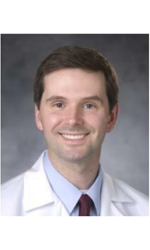
Paul H. Sherman Distinguished Associate Professor of Surgery, Pediatrics, and Population Health Sciences; Chief, Duke Children's Surgery
Dr. Routh obtained his MD from University of North Carolina at Chapel Hill School of Medicine. He then completed his urologyresidency at the Mayo Clinic. He finished his training at Boston Children’s Hospital and Harvard Medical School, where he completed simultaneous fellowships in Pediatric Urology and Pediatric Health Services Research while also obtaining a Master's of Public Health degree from the Harvard School of Public Health. Following completion of his training, Dr. Routh joined the Duke Urology faculty in 2011 and became a KURe Scholar in 2013.
Dr. Routh’s KURe research focused primarily on clinical care variation, surgical outcomes, and health state utility estimation for children with vesicoureteral reflux. His current research focuses primarily on health care delivery among children with spina bifida, vesicoureteral reflux, urolithiasis, and genitourinary malignancies. His research has been funded by grants from CDC and NIDDK in addition to institutional, industry, and foundation awards. Dr. Routh mentors scholars in the UrogynCREST Program and is co-PI on a U18 from NICHD studying the safety and efficacy of posterior tibial nerve stimulation in children. He serves as steering committee chair for the UMPIRE trial: “Optimizing Urologic Care of Children with Spina Bifida”.